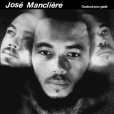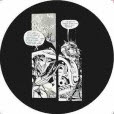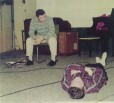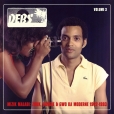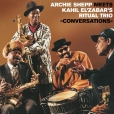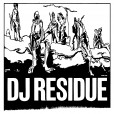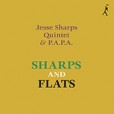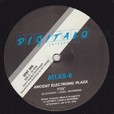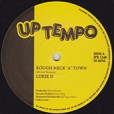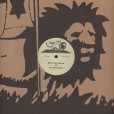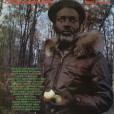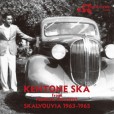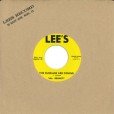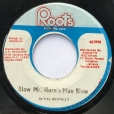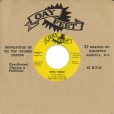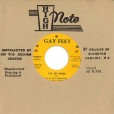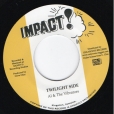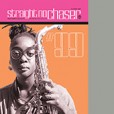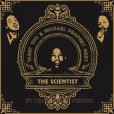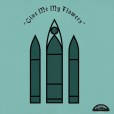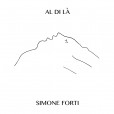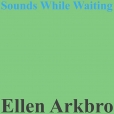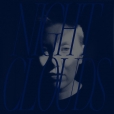Your basket is empty

A masterpiece of Guadeloupean jazz, strikingly personal and singular, brilliantly merging gwo ka, jazz funk and biguine, via exploratory production techniques. Deep tunes like Syka — fierce, electric jazz funk with wild clavinet, synth and trumpet solos. A highlight of Koute Jazz, Vini Couté E Tann’ is dazzling, funky biguine, with wicked piano and guitar playing by Patrick Jean-Marie and Gilbert Coco. The percussion-heavy Tipi Fanm is killer gwo ka jazz… The stellar names of Guadeloupean jazz are here: Jean-Marie, Ramon Pirmé, Herbert Lewis, Roger and Gilbert Coco, Germain Cédé, Philippe Dambury, Pierre-Edouard Decimus… Warmly recommended.
None other than Mick Harris from Napalm Death, and his deadly Midlands iteration of Detroit techno. Transatlantic motor-funk from the mid-nineties, when Brummie club-night the House Of God was alive and kicking. Still stinging.
The first proper compilation of her singular, unguarded, teenage dream pop, from eighties upstate New York. A kind of correspondent of Kate Bush in both composition and performance, on synthesizer and acoustic guitar, and in her otherworldly singing over four octaves, about dreamers, outsiders and lovers.
‘Diving deeper into the archives of one of the greatest French Caribbean labels, Disques Debs, based in Guadeloupe. Founded by the visionary Henri Debs in the late ‘50s, the label and studio operated for over 50 years, releasing more than 300 7” singles and 200 LPs, making it a cornerstone of Caribbean music history. The label bridged traditional genres like biguine and gwoka with contemporary styles like cadence, compas, and zouk. Volume 3 in this series spotlights one of the label’s most dynamic and influential periods as it expanded its global reach during the 1980s, highlighting both emerging talents and established artists who defined the era.’
A throbbing, spiritual hymn to life itself, in commemoration of the great AACM bassist Fred Hopkins, who died in January 1999. Kahil El’Zabar, Ari Brown, Malachi Favors and Archie Shepp, coursing through ballads, hard bop and improvisation, swirling with the genies of McCoy Tyner, John Coltrane and Malcolm X, and ancient questions about what it means to be free.
Kassem Mosse worries.
The saxophonist Jesse Sharps took over from Arthur Blythe as leader of Horace Tapscott’s Pan-Afrikan People’s Arkestra. ‘He became the Ark leader…he was hardcore,’ the pianist recalls. ‘They’d all be quiet and listen to him when he talked.’
This was the period of such classic PAPA recordings as Flight 17, Live At IUCC and The Call; lit up by the funky, deep spirituality of Sharps compositions like Desert Fairy Princess, Macramé and Peyote Song II.
His own Sharps And Flats album was recorded in 1985 for Tom Albach’s legendary Nimbus West imprint, adding a stunning sixteen-minute bonus cut by the Pan-Afrikan Peoples Arkestra, featuring Horace Tapscott, recorded in 1979.
A lost classic of the Los Angeles jazz underground, on wax at last!
A collaboration between Skatebård, Philipp Lauer & DJ Sotofett, flouting the limits of italo, new beat and a whistle-along mongrel industrial. Heavy bass in the place, nuff percussion, and decent tunes.
‘Politics have failed.’
Stone-classic Bullwackies (as excursioned by Rhythm & Sound for Burial Mix), sensationally throwing in two unreleased dubs, newly extracted from the master reels. Both are equally unmissable but quite different, with contrasting effects: the second dub adds ninety seconds, including whip-dem spring reverb. Drawn from the Selective Showcase LP, the vocal mix is more open and dubwise than the Sing & Shout LP offering, with less keyboards.
Asked whether it should be mash or march, after some pondering Bullwackies replied: ‘That’s a good question.’
A fresh iteration of the mid-eighties LP (itself a compilation of recordings from the previous five years or so), replacing two tracks — Dancing In The Rain and All Things — with their full 12” versions.
This is a deeply personable, expert, limber blend of roots and lovers, kicking off with an exclusive mix of the deadly Mash Down Babylon; dropping classic, lush, spaced-out Wackies dub science to close; and taking in reworkings of Lickshot, Billie Jean and The Righteous Flames’ I Was Born To Be Loved, along the route.
The moniker ‘Chosen Brothers’ is Lloyd Barnes’ spiritual way of sharing the credit for his solo projects. “Anyone in the studio at the time could be a Chosen Brother,” he says. In this case a full crew includes Sugar Minott and Prince Douglas at the desk; Jah Batta, Milton Henry, Wayne Jarrett and Junior Delahaye all on backing vocals; and such dream-team Bullwackies instrumentalists as Clive Hunt, Jerry Johnson, Fabian Cooke and Ras Menelik.
Ska classics produced by Ken Khouri (who founded the first recording studio in Jamaica), including deadly unreleased selections.
Murders from the get go — a knockout acoustic version of You Made Me Warm, by The Sharks.
Copper-bottomed rocksteady do-over of Take Five, by Buster’s go-to saxophonist. The title is nicked from a comedy film directed by Norman Jewison, out a couple of years beforehand in 1966.
Plus Glen Adams having a not so shabby go at an Eddie Holman, on the flip.
Two sides of rare, body-rocking rocksteady lit up by Linval Martin’s personable singing, and the sweet, warm close harmonies of Hyacinth McKenzie and co, behind him.
Cassie Kinoshi, Tenderlonious, Femi Koleoso, Joe Armon-Jones, Midori Takada, Nabihah Iqbal, Nat Birchall, Ben LeMar Gay, Black Forum, Gqom… and plenty more… over more than 130 pages.
Monster dubs of Yabby You productions of Michael Prophet, Patrick Andy, Alric Forbes and Wayne Wade, by way of King Tubbys. The first-round knockout is pure Shaka fire: an extended version of Gates Of Zion.
A survey of Nashboro Records gospel, by Mike McGonigal of the Detroit Gospel Reissue Project.
The first album-length collection of the recordings of this collaborator of La Monte Young, who contributes here: a diverse, diaristic compilation by Forti herself (with Yoshi Wada’s son Tashi) of never-before-released work from the early 60s to mid-80s, showcasing her use of voice and handmade instruments, folk songs and physical space; together with a 28-page colour booklet of her writings, drawings, and photos.
Compositions from 1969/70, when Forti was based in Woodstock, New York — ‘stoned in the woods,’ she recalls — around the time of the Festival, just before moving to California, and working and performing with Charlemagne Palestine.
The seven songs here were recorded in 2012 during her exhibition Sounding, at The Box gallery in Los Angeles. The blue vinyl carries an etching of Forti’s Illuminations Drawing on the flip; accompanied by a sixteen-page colour book with images of the original sheet music scored by Charlemagne Palestine.
‘These recordings are traces of something I have come to love to do in large resonant spaces, which is to set up sustained chords on multiple organs and then move slowly through the sound. The instruments are usually far apart, which makes for the emergence of large fields of continuous change, spaces of harmonicity that can be passed through layer by layer and which contain within them points of both clarity and overwhelming complexity. The organ pipes are tuned and retuned, though sometimes I leave them just as they are. What I’m searching for is the moment when a particular kind of sounding texturality is revealed – it is rough, focused and yet strangely transparent.’
